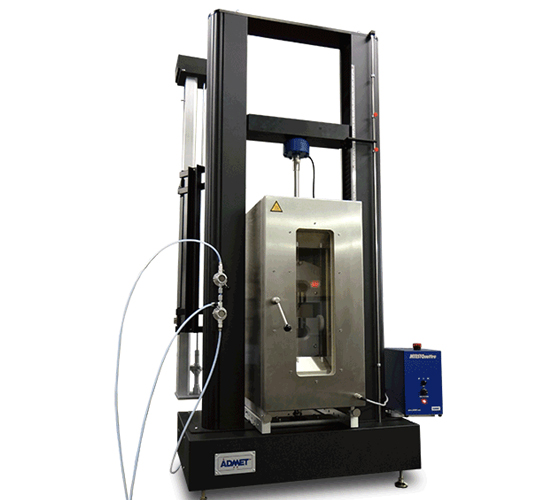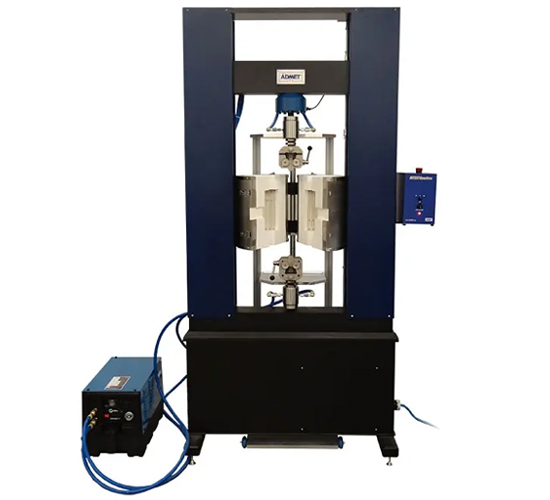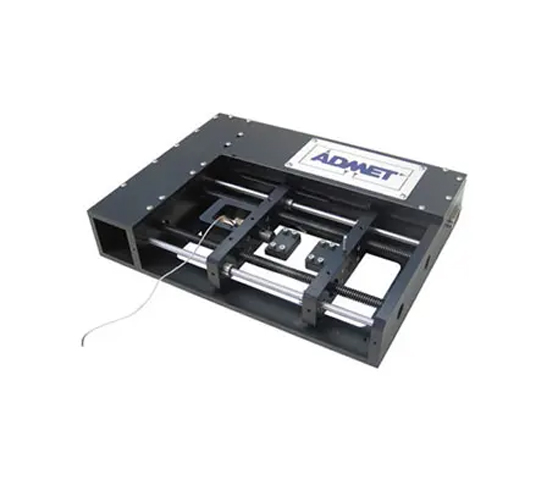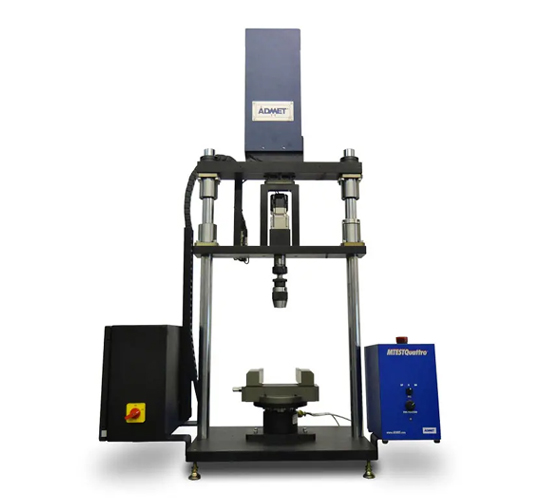Home / ADMET Expert 2600 Series – Dual Column Table Top Universal Testing Machine
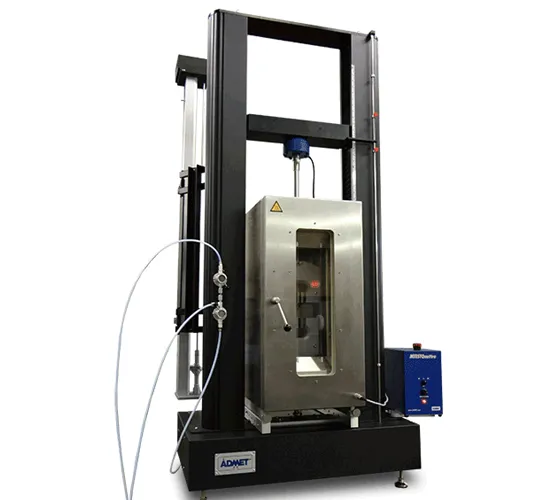

The ADMET Expert 2600 Series is a top-rated dual column universal testing machine ideal for tensile, compression, peel, flexure, and adhesion tests. With a wide force capacity range from 2kN to 600kN, this tabletop UTM is perfect for material testing in labs, R&D centers, and quality control departments. Recognized as one of the best universal testing machines in India, it ensures accurate and repeatable results for metals, plastics, rubber, composites, and more.
Designed for superior axial alignment, high stiffness, and stable crosshead guidance, the eXpert 2600 Series guarantees high-precision results across a variety of materials and industries. Whether it’s construction material testing, automotive component validation, or plastic and rubber analysis, this dual column UTM consistently delivers exceptional testing performance.
As a trusted universal testing machine supplier in India, Measure India provides end-to-end testing solutions including:
A complete range of grips, fixtures, extensometers, and load cells
Optional heating and cooling systems for advanced test conditions
Custom modifications in stroke length, test speed, and column width
With a low maintenance design, fast delivery, and cost-effective pricing, the ADMET Expert 2600 Series is the ideal choice for R&D labs, QA teams, and industrial testing applications.
Electromechanical Universal Testing Machines, Admet, Mechanical Testing Equipment
ADMET Expert 2600 Series – Dual Column Table Top Universal Testing Machine Overview
The ADMET Expert 2600 Series is a robust and precise universal testing machine designed for a wide range of material testing applications. This dual-column table-top machine is engineered for versatility and ease of use, making it perfect for laboratories with limited space but high testing demands. The Expert 2600 Series excels in tension, compression, flexure, and other material testing, offering both reliability and affordability.
The Expert 2600 Series universal testing machine provides high-performance testing at an affordable price, making it an excellent choice for both academic and industrial applications. For detailed information on universal testing machine prices, contact ADMET today.
ADMET Expert 2600 Series – Dual Column Table Top Universal Testing Machine Features
The ADMET Expert 2600 Series is a versatile and compact universal testing machine designed for testing a wide range of materials in various industries. Its dual-column structure provides enhanced stability and accuracy, making it ideal for medium-load applications.
Key Features:
Dual Column Design:
Wide Load Capacity Range:
Versatile Testing Applications:
Advanced Load Cells:
User-Friendly Software:
Precise Crosshead Control:
Durable and Robust:
Compact and Space-Efficient:
Affordable Price Point:
Specifications
Applications
The ADMET Expert 2600 Series – Dual Column Table Top Universal Testing Machine is versatile and suitable for a variety of applications across multiple industries. Some of its key applications include:
This testing machine is designed for precise and reliable results in a variety of fields, including aerospace, biomedical, automotive, manufacturing, and more.
The ADMET Expert 2600 Series is a dual-column, tabletop universal testing machine designed to perform a variety of material testing such as tension, compression, bending, and cyclic testing for a wide range of materials including metals, plastics, and composites.
The ADMET Expert 2600 Series typically offers load capacities ranging from 1 kN to 50 kN (kilonewtons), depending on the specific configuration, making it suitable for testing both small and larger samples.
Yes, it can perform both tensile (pulling) and compressive (squeezing) tests, as well as other types of material testing like flexural and cyclic tests.
This testing machine is versatile and can handle a variety of materials, including metals, plastics, composites, elastomers, and textiles, as well as other advanced materials for industries like aerospace, automotive, and biomedical.
The machine is designed for high precision, with typical accuracy within 0.5% of the full scale for load and displacement measurements, ensuring reliable and repeatable results for both tension and compression tests.
The ADMET Expert 2600 Series complies with various industry standards such as ASTM, ISO, and others, providing reliable testing results for certified applications.
Yes, the machine is capable of performing cyclic testing, which is essential for applications where materials undergo repeated loading and unloading cycles, such as in fatigue testing.
The ADMET Expert 2600 Series comes with ADMET’s proprietary testing software, which allows for easy test setup, real-time data acquisition, and detailed reporting and analysis. The software also includes features for graphing results and making comparisons across different tests.
Yes, the machine can be customized with a wide range of accessories including grips, fixtures for bending tests, extensometers for strain measurement, and compression platens to support specific test requirements.
The ADMET Expert 2600 Series has a compact, dual-column design that makes it suitable for table-top use. It has a small footprint, making it ideal for labs with space constraints.
Yes, the machine features an intuitive user interface and simple software controls that make it easy to set up tests, control the machine, and analyze results, even for those who may be new to universal testing machines.
The stroke or displacement range varies depending on the model configuration, but it is typically in the range of 500 mm to 1000 mm. Custom configurations are also available for specific needs.
Yes, periodic calibration is essential to maintain the accuracy and performance of the machine. Calibration is typically done using certified calibration standards and weights.
The ADMET Expert 2600 Series operates on standard electrical supply, typically 110V-240V, depending on the model and region. Always refer to the product specifications for detailed requirements.
Yes, the system can be integrated with additional equipment like extensometers, environmental chambers, or data acquisition systems to expand its capabilities for more specialized tests.
